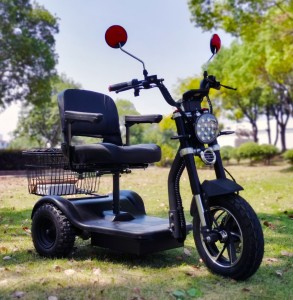As electric scooters gain popularity, many users are looking for ways to improve the performance of their vehicles. A common question that comes up is whether upgrading to a 48V battery can increase the speed of a 24V electric scooter. In this article, we’ll explore the relationship between battery voltage and scooter speed, as well as the potential benefits and considerations of such an upgrade.
First, it’s important to understand the basic mechanics of an electric scooter. 24V electric scooters usually run on two 12V batteries connected in series. This configuration provides the power needed to drive the scooter’s motor and control its speed. When considering upgrading to a 48V battery, it is important to realize that this will not only require a new battery, but also a compatible motor and controller that can handle the increased voltage.
One of the main reasons people consider upgrading to 48V batteries is the potential for speed. In theory, a higher voltage battery could provide more power to the motor, allowing the scooter to achieve higher speeds. However, it’s important to approach this potential upgrade with caution and consider the scooter’s overall design and functionality.
Before making any modifications to the scooter, the manufacturer or a qualified technician must be consulted to ensure that the scooter can safely accommodate a 48V battery. Attempting to install a higher voltage battery without proper understanding and expertise may result in damage to the scooter components and pose a safety risk to the user.
Additionally, it is important to consider the impact of a 48V battery on the overall performance of the scooter. While a higher voltage battery may increase speed, it can also affect other aspects of the scooter’s operation, such as range and battery life. The scooter’s motor and controller are designed to operate within specific voltage parameters, and exceeding these limits may cause excessive wear and potential failure of these components.
Additionally, installing a 48V battery may void the scooter’s warranty and may violate safety regulations and standards. Following the manufacturer’s guidelines and recommendations is essential to ensure the safe and correct operation of your mobility scooter.
In some cases, manufacturers offer higher voltage models specifically designed to accommodate 48V batteries and provide greater speed and performance. If higher speeds are a priority, it might be worth considering upgrading to a model that supports 48V batteries rather than trying to modify your existing 24V scooter.
Ultimately, the decision to upgrade to a 48V battery should be carefully evaluated, taking into account technical requirements, safety considerations, and potential impact on the overall performance of the scooter. It is essential to seek professional guidance and adhere to the manufacturer’s specifications to ensure the mobility scooter operates safely and efficiently.
In conclusion, while the idea of increasing the speed of a 24V electric scooter by upgrading to a 48V battery may seem appealing, it is important to consider this potential modification carefully and thoroughly. Before making any changes to your mobility scooter, it is crucial to understand the technical requirements, safety implications, and impact on overall performance. By prioritizing safety and following manufacturer guidelines, users can make informed decisions about potential upgrades to their electric scooters.
Post time: Jun-05-2024



